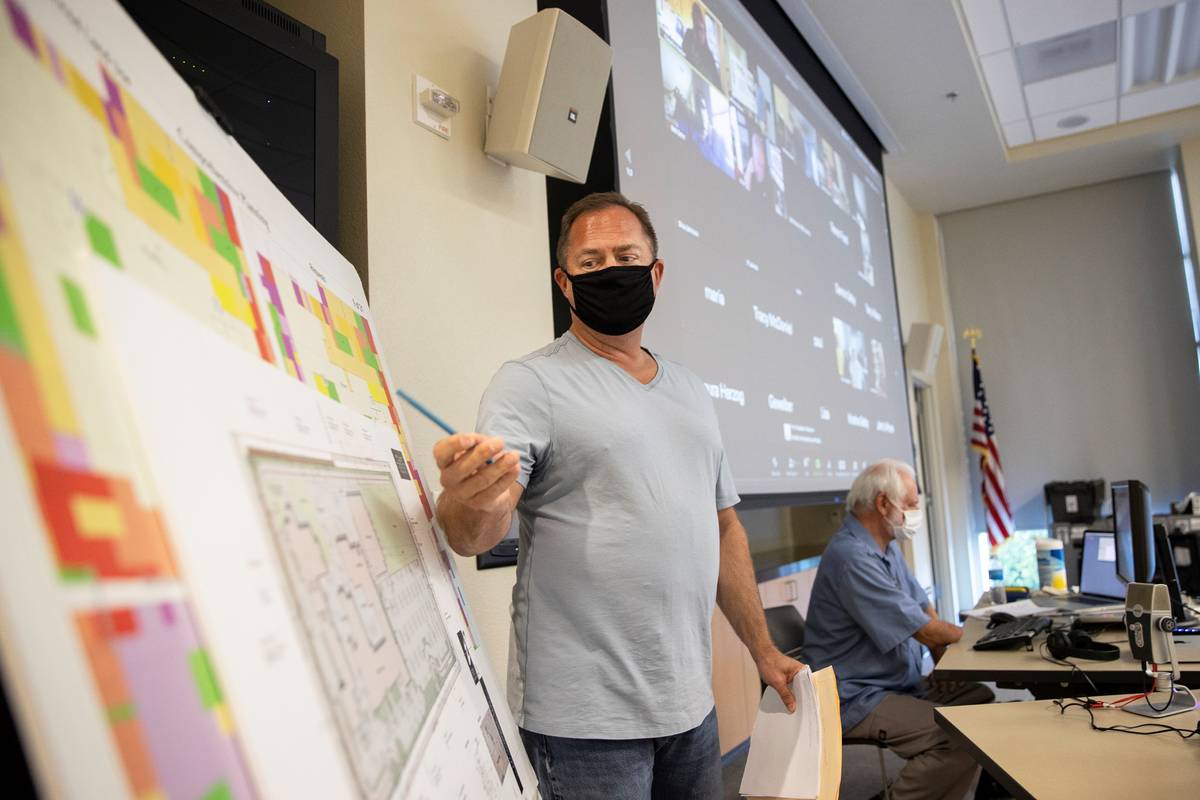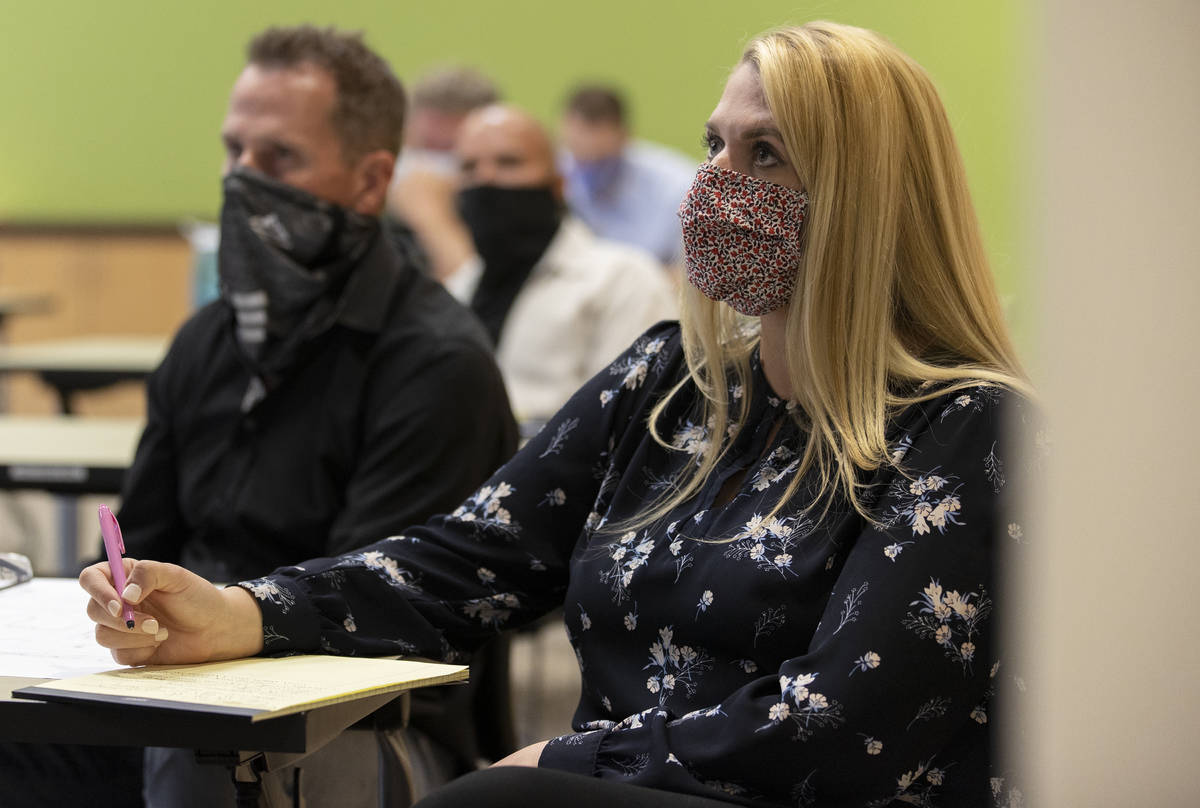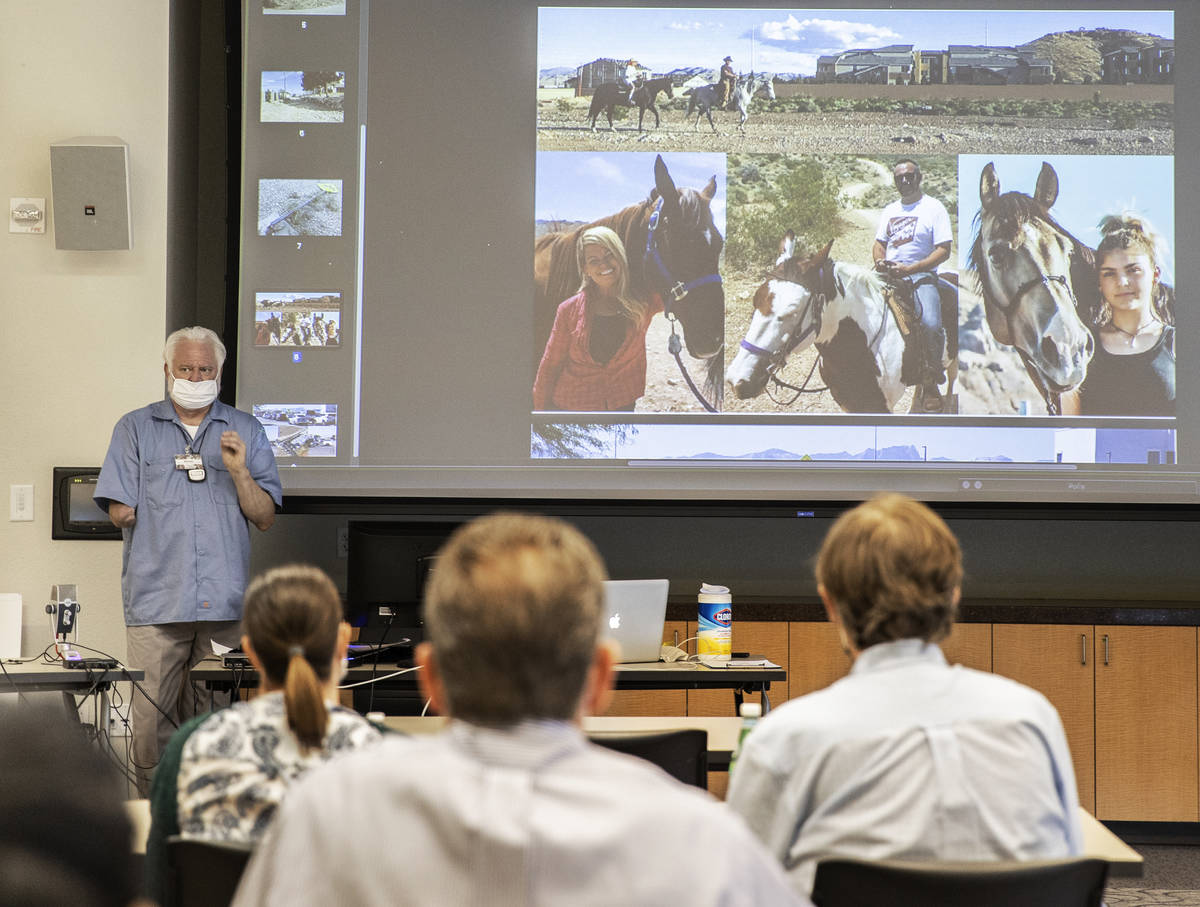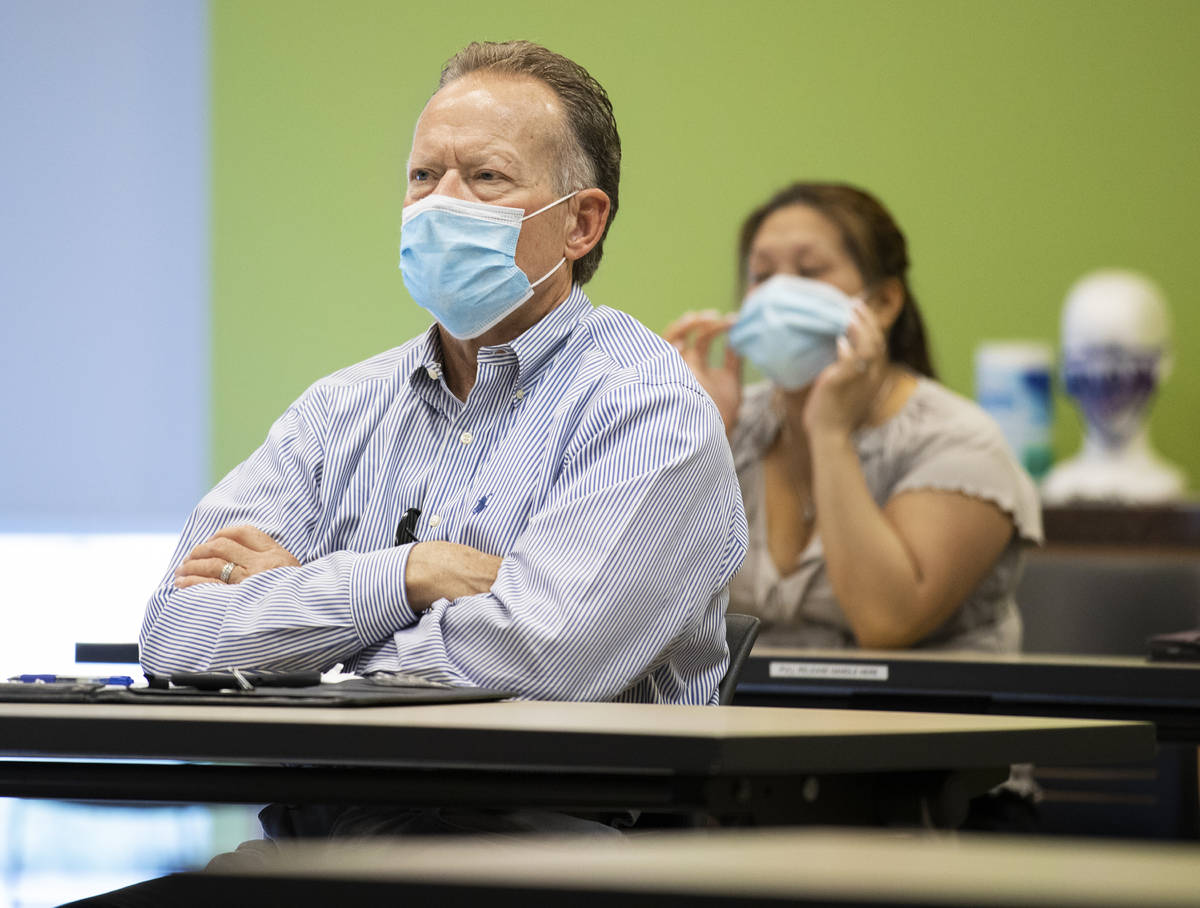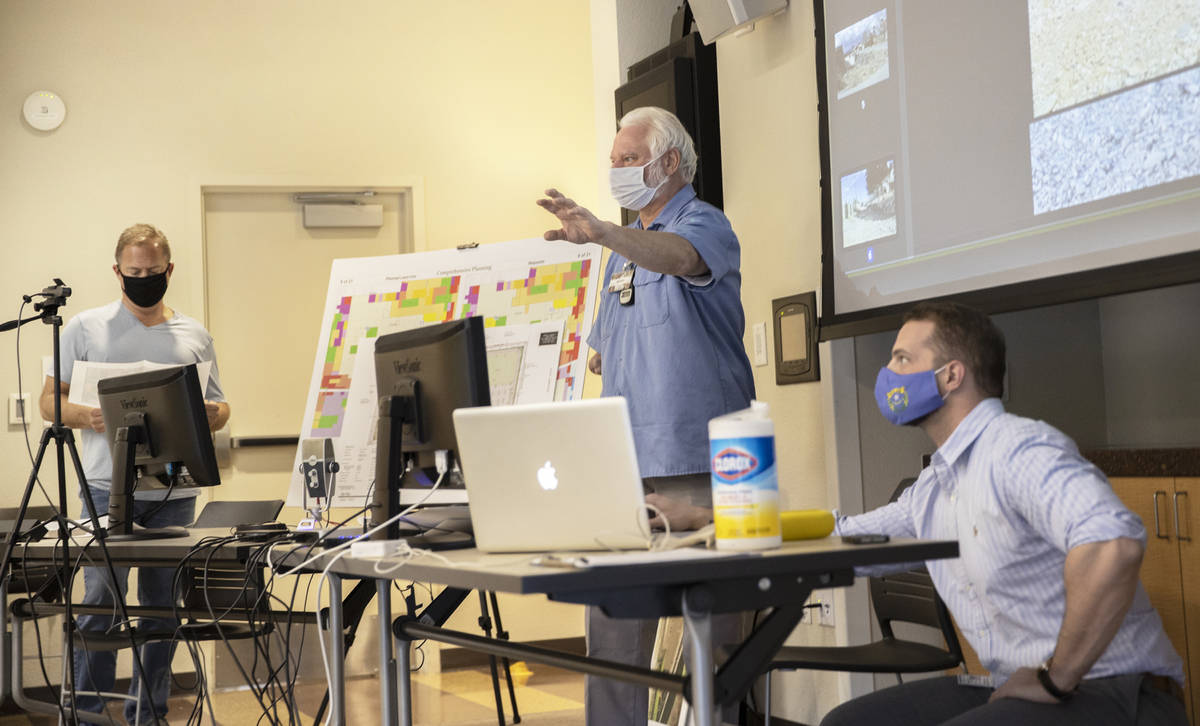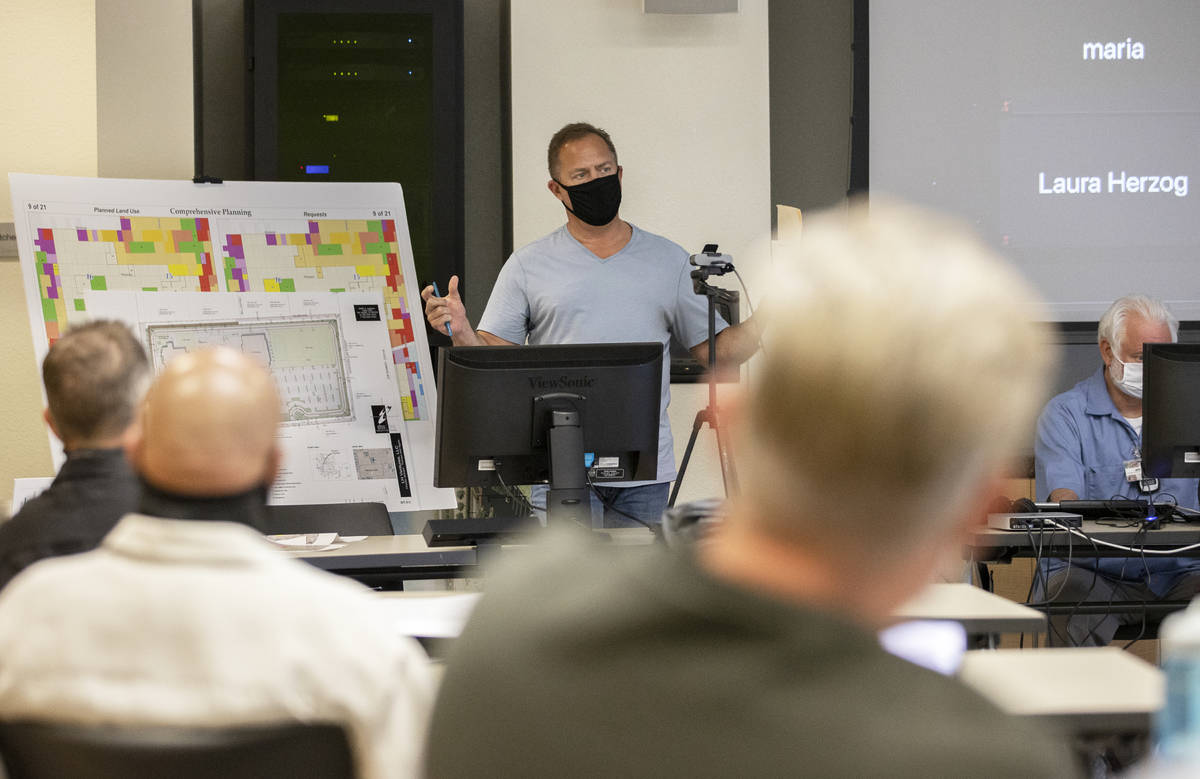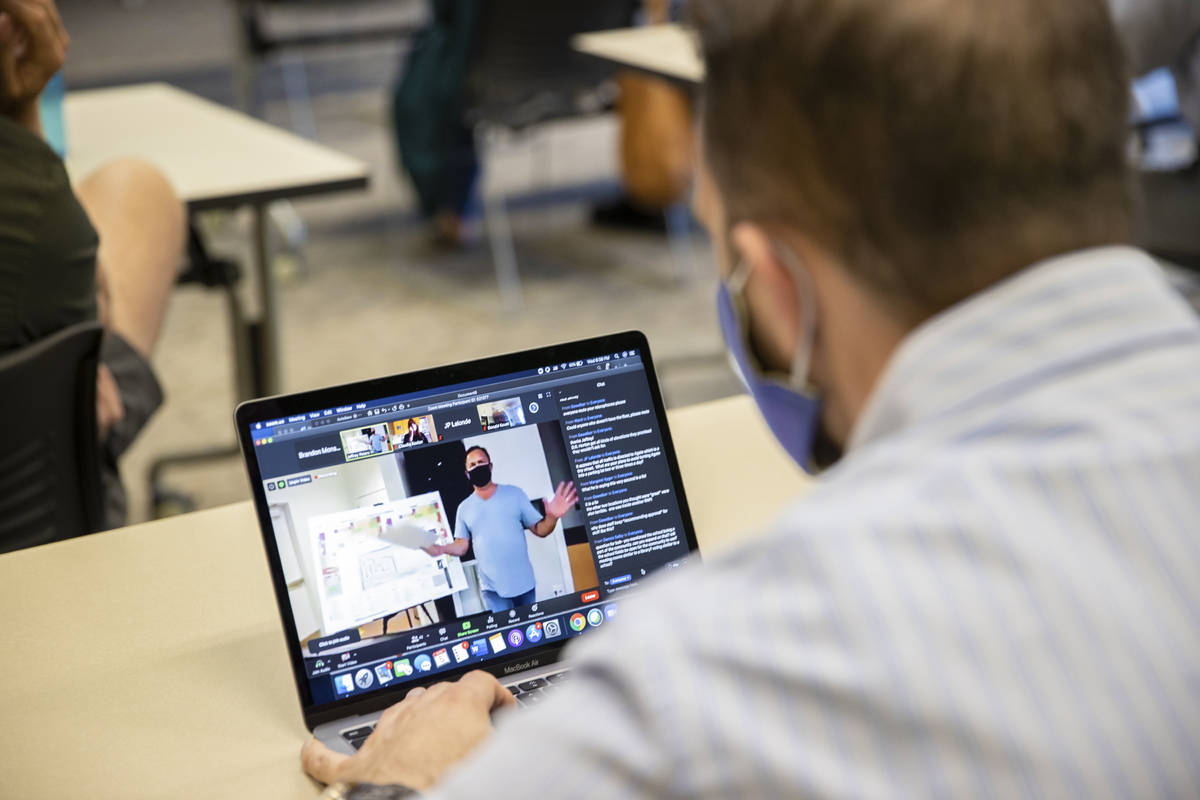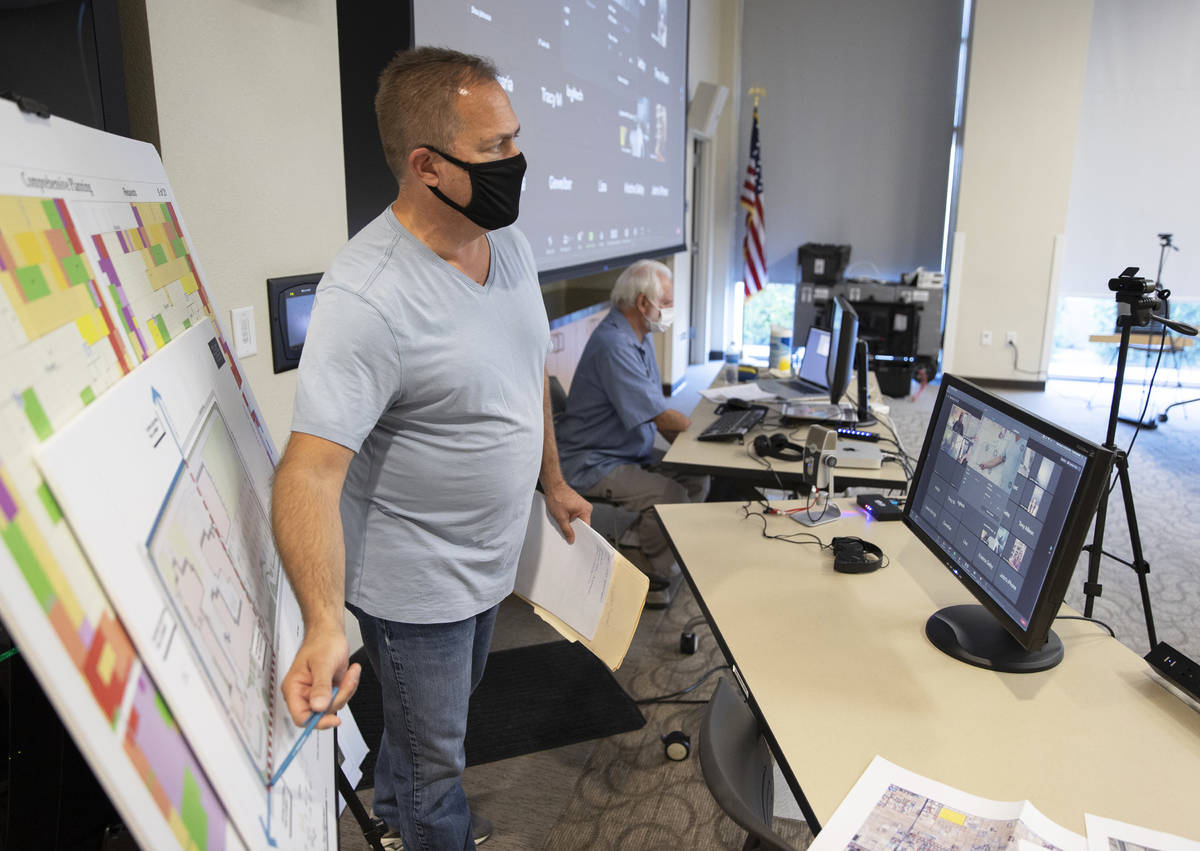Disputing projects at City Hall? Pandemic makes it complicated
It is not unusual in local government to see controversial projects bring infuriated neighbors into council or commission chambers.
The pandemic has changed that.
Civic-minded locals still confront the plans that they dispute but say that fear of the coronavirus and public health restrictions that limit in-person contact with elected officials have weakened their most effective weapon: a show of unity.
Instead of filing into government boardrooms, project opponents lament the idea of being relegated to sending emails, submitting online comments or dialing in, raising questions about the ability of the general public to effectively make their voices heard during an era of crisis.
Some have gone the route of experimentation: On a recent Wednesday, neighbors opposed to constructing a charter school at Tenaya Way and Agate Avenue in unincorporated Clark County laid bare their points of view to a lobbyist representing the project.
Nineteen people attended from the Windmill Library, but twice as many more joined live on the videoconferencing application Zoom, including renowned magician Teller, of Penn & Teller fame.
“When everything is back to normal, this will be a difficult issue for us to deal with,” Teller said about the project’s timing. “During a pandemic where I’m too scared to come out of my house to a meeting with a room full of people, it’s just wrong, truly and deeply wrong, to do it now.”
The hybrid community get-together was meant to show the county it was possible to combine in-person and interactive video mediums for regular board and planning commission meetings, where the project could land, according to Jeffrey Peters, director of The Concerned Citizens for Responsible Development, the neighborhood group that set up the event.
County, cities roll out alternatives
No local government except the city of Henderson has yet implemented a regular videoconferencing option for meetings, leaving constituents with no way to be both seen and heard unless they travel to socially distanced government chambers, assuming they feel comfortable enough to do so.
Las Vegas and Clark County explored the technology early on, but neither has moved forward.
Yet public officials in Southern Nevada insist that under difficult circumstances they have struck an appropriate balance of facilitating multiple ways for public participation while following state guidelines to keep people safe.
Cities have offered options to submit emails and fill out online forms for comments to be read into the record by an employee, and to call into a meeting, or to do both. The county set up a similar system during the early stages of the pandemic before it reopened meetings to the public with a set of health precautions in place.
The county has held virtual and tele-town hall meetings on key issues such as the coronavirus response and small business support, and governments point to responsive lawmakers and social media teams, as well as live broadcasts on television and social media, to prove that government business remains inclusive.
“We have effectively provided every conceivable way to be transparent and for the public to participate, including options for those that are not tech-savvy, in City of Henderson public meetings while protecting the health and safety of the community,” city spokeswoman Kathleen Richards said in a statement.
Emotion is gone
Still, constituents say it is difficult to replicate face-to-face interaction, particularly on an issue likely to draw crowds, where they can express themselves to elected leaders.
“It’s much easier to dismiss opinions when they come to you through electronic or virtual means,” said John Dalrymple, a spokesman for residents opposed to a minor league hockey arena in Henderson that was approved in May.
Opponents, at the time, wrote their objections to be read into the record, but Dalrymple said detractors had unsuccessfully requested the decision be delayed until people could participate in person, which has not been permitted since March.
Starting with its Aug. 18 meeting, however, Henderson said it will open its City Hall lobby adjacent to council chambers so that individuals can provide in-person comment by microphone. Las Vegas, Boulder City and Clark County allow physical attendance inside chambers.
Even so, until more people feel safe to return to public meetings, “that human factor is removed, and that is a major impact to the government process to how things are approved and denied,” said Ricki Barlow, a former Las Vegas city councilman turned lobbyist.
Barlow similarly framed his criticism of a proposed marijuana dispensary in northwestern Las Vegas that would replace a Dollar General Market near his home. The surrounding neighborhood, he said, is occupied by many retired, blue-collar workers who would normally flood council chambers when the proposal is presented on the council agenda on Wednesday.
Instead residents are calling city lawmakers, he said, noting they are too afraid to enter council chambers despite the stringent public health protocols practiced by the city.
“I’ll be there, but there are hundreds of residents who won’t be there,” he said. “How do we navigate what’s before us in opposition? Because it won’t be the same if the residents are (not) standing in front of council and letting them know and feel the emotion of what they have to say.”
More work to do?
Some officials acknowledged there might be more to be done, taking into account the limitations of cost, technology and security. Boulder City opted not to implement videoconferencing technology because of security concerns, for example, and North Las Vegas experienced technical difficulties with audio during parts of three meetings.
“I think we should do a better job. We’re all in a different world, and we need to adapt to it,” said county Commissioner Justin Jones, whose district covers the location for the proposed charter school. “We’re working in that direction to step up to this moment and be more accessible.”
And there have been signs that local government is attuned to the challenges of undertaking major decisions at a time when public participation may not be as full-throated as normal because of the pandemic.
The county canceled updates to land use plans, which guide the type of development allowed in an area, for Enterprise and Spring Valley because it had been difficult to conduct the mandatory in-person meetings that accompany such changes. And Jones delayed for 30 days an agenda item related to the charter school project on the Enterprise Town Advisory Board as officials test a more virtually interactive approach.
A ‘grand experiment’
Peters, the director of The Concerned Citizens for Responsible Development, said that attendees told him they believed the hybrid meeting, a “grand experiment,” went well. Neighbors were able to convey — with voice, facial expressions and body language — their fears that the charter school would ruin their rural lifestyle and crowd the streets with traffic, and the project’s representative listened.
Still, Peters said he would have preferred to meet entirely in person, but this seemed to be the next best option.
“The decisions are made by people who show up,” he said. “And I don’t want my neighbors to be left out.”
Contact Shea Johnson at sjohnson@reviewjournal.com or 702-383-0272. Follow @Shea_LVRJ on Twitter. Review-Journal staff writers Blake Apgar and Alex Chhith contributed to this report.



